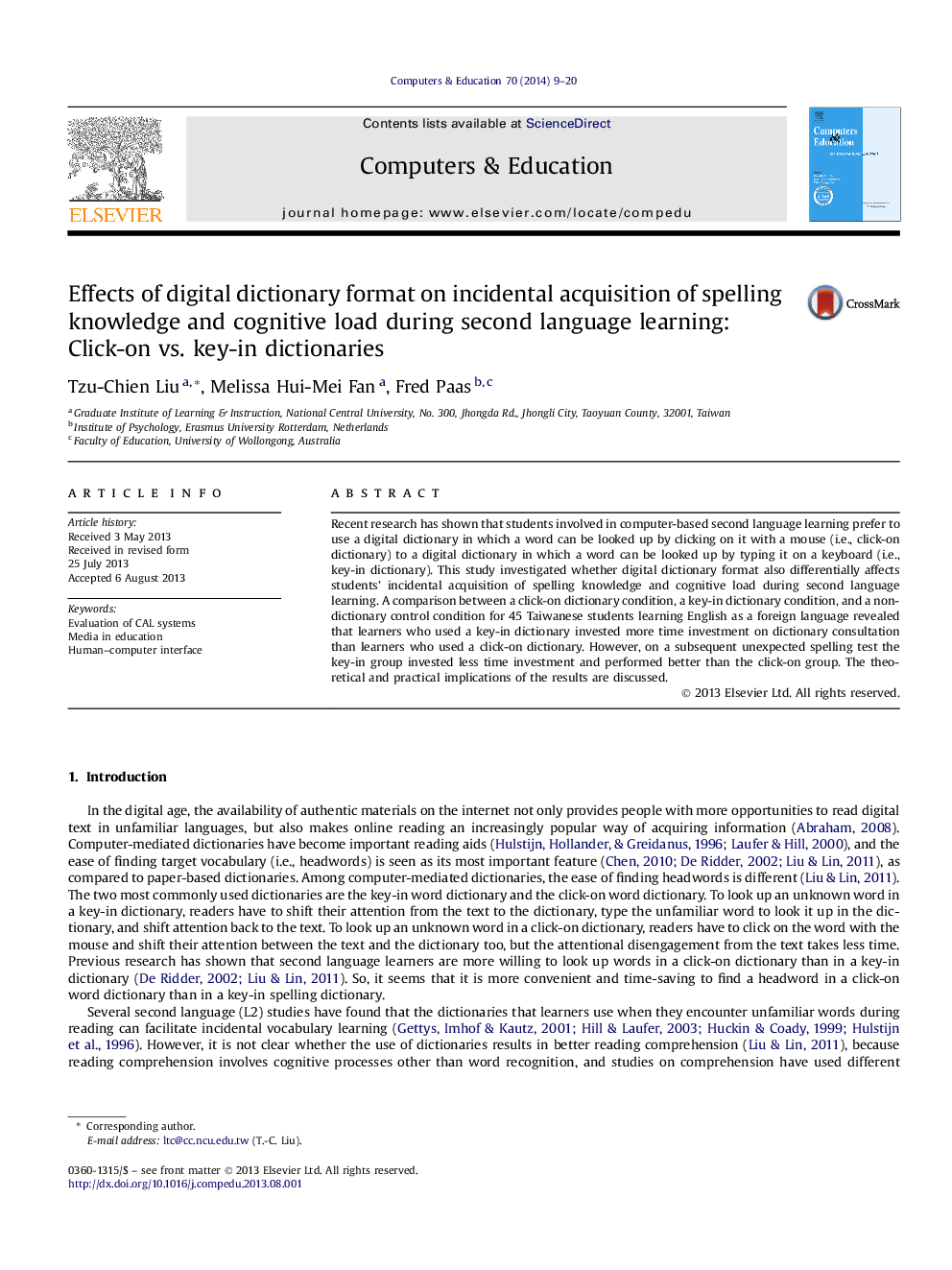| Article ID | Journal | Published Year | Pages | File Type |
|---|---|---|---|---|
| 6835331 | Computers & Education | 2014 | 12 Pages |
Abstract
Recent research has shown that students involved in computer-based second language learning prefer to use a digital dictionary in which a word can be looked up by clicking on it with a mouse (i.e., click-on dictionary) to a digital dictionary in which a word can be looked up by typing it on a keyboard (i.e., key-in dictionary). This study investigated whether digital dictionary format also differentially affects students' incidental acquisition of spelling knowledge and cognitive load during second language learning. A comparison between a click-on dictionary condition, a key-in dictionary condition, and a non-dictionary control condition for 45 Taiwanese students learning English as a foreign language revealed that learners who used a key-in dictionary invested more time investment on dictionary consultation than learners who used a click-on dictionary. However, on a subsequent unexpected spelling test the key-in group invested less time investment and performed better than the click-on group. The theoretical and practical implications of the results are discussed.
Related Topics
Social Sciences and Humanities
Social Sciences
Education
Authors
Tzu-Chien Liu, Melissa Hui-Mei Fan, Fred Paas,
